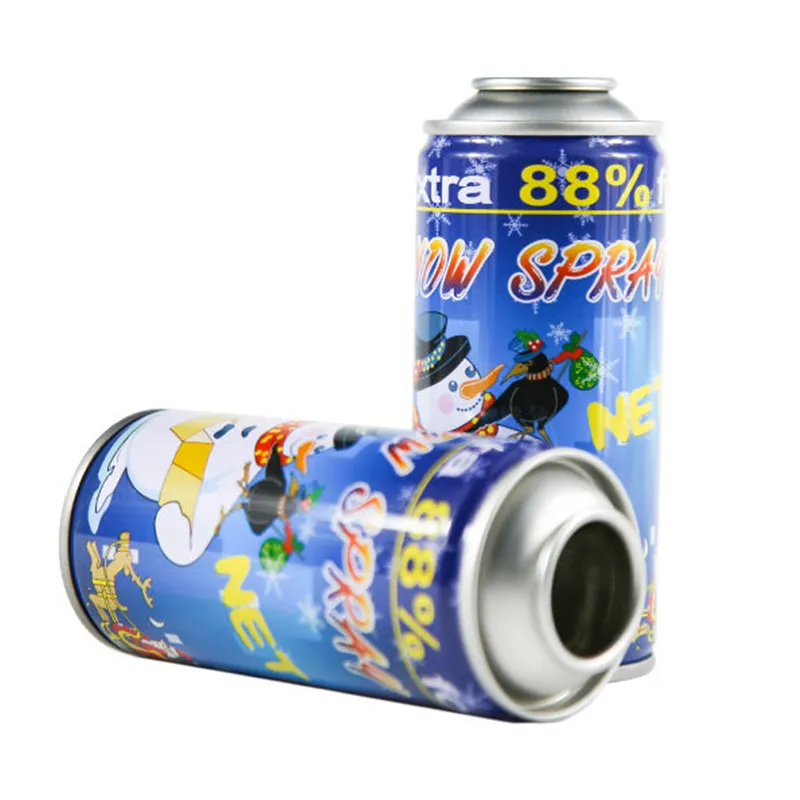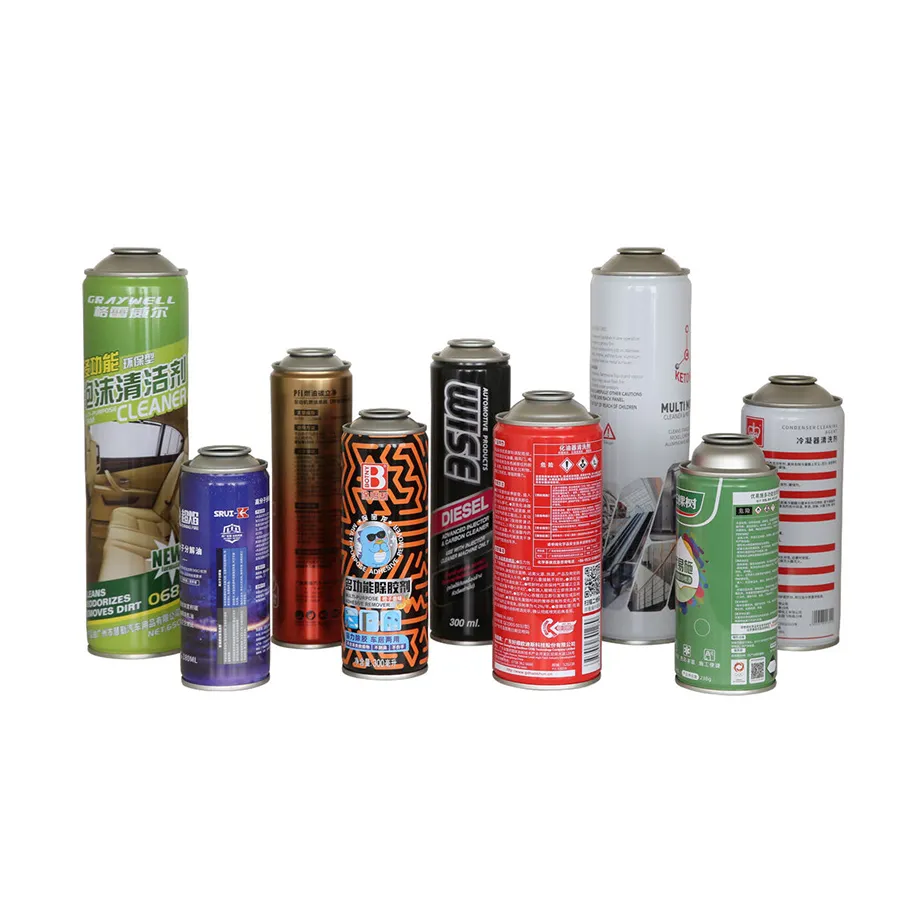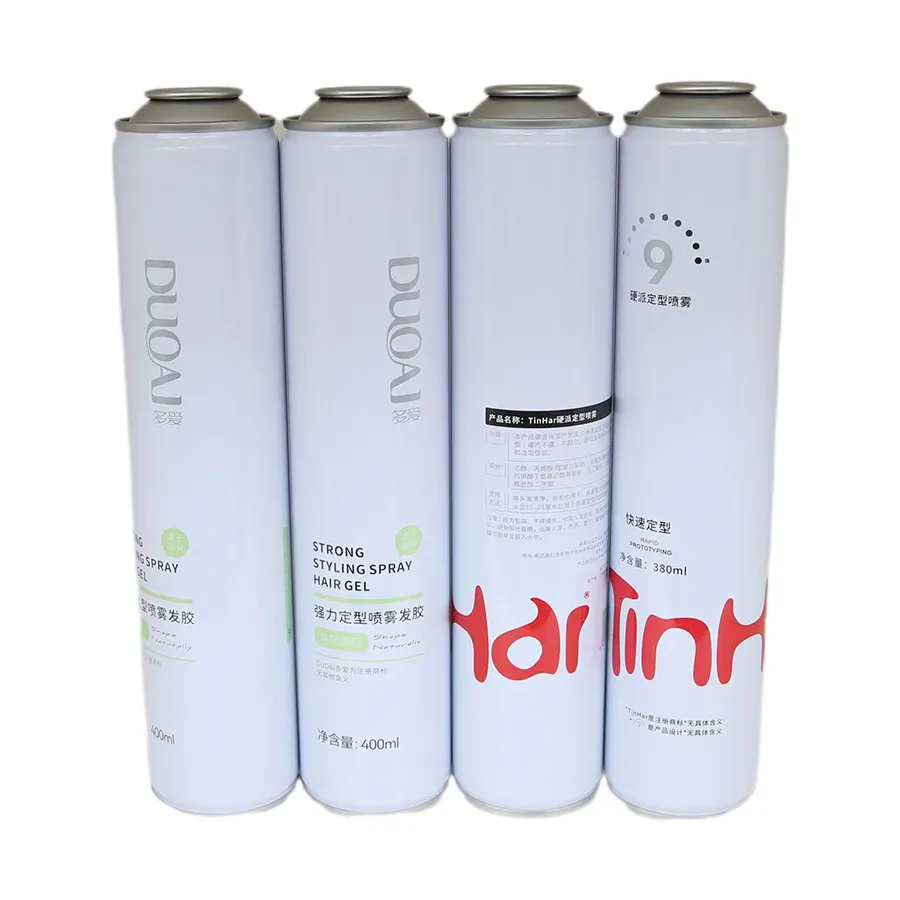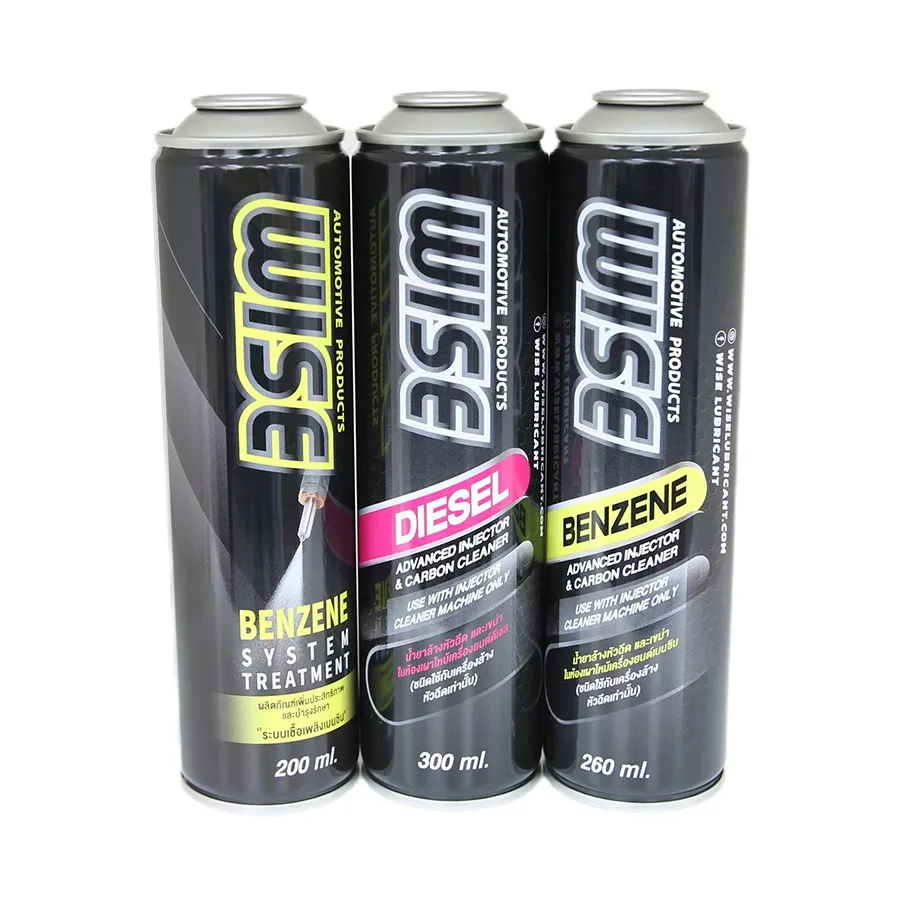Aerosol cans are a common packaging container and are widely used in a variety of products in daily life, including personal care products, detergents, and cooking sprays. The material selection of aerosol cans is an important factor in ensuring their safety. Tinplate is widely used in the manufacture of aerosol cans due to its durability and plasticity. However, many people have questions about the safety of aerosol cans, the strength of the material, and the pressure they can withstand, especially whether aerosol cans have explosions or other safety hazards as they are used and stored differently in daily life.
This article will conduct an in-depth analysis of the material properties, pressure tolerance range, potential safety risks, and correct use of tinplate aerosol cans to help consumers better understand the safety of the product and its usage recommendations.

What is a tinplate aerosol can? How safe is it?
1. Characteristics of tinplate and its application in aerosol cans
Tinplate, also known as tinplate, is a material with a thin layer of tin on the surface of steel. It is not only hard and resistant to pressure, but also has good corrosion resistance and oxidation resistance, making it suitable for packaging of various products. Especially in the manufacture of aerosol cans, the anti-corrosion property of tinplate helps to extend the shelf life of the product, while ensuring that the contents are not in direct contact with the outside air, avoiding deterioration or contamination caused by chemical reactions.
The safety of tinplate aerosol cans lies in their ability to better withstand the external pressure of daily use and the pressure changes caused by the expansion of internal gas. However, in extreme environments, such as high temperature exposure or violent impact, the safety performance of aerosol cans will be affected, which may cause the can to explode.
2. Does the basic structure of aerosol cans increase safety?
The structure of a tinplate aerosol can includes a sealed metal can, propellant and valve device. In the design, the top and bottom of the aerosol can are usually reinforced to ensure that the structure remains stable under pressure changes. The aerosol can also adopts a seamless welding design to reduce the possibility of rupture or leakage of the can.
In addition, the ratio of propellant and contents of the aerosol can is precisely calculated to ensure that the gas in the can does not generate excessive pressure. Therefore, under normal circumstances, the design of tinplate aerosol cans can meet most safety needs in daily use.

How much pressure can a tinplate aerosol can withstand?
1. What is the pressure tolerance standard for aerosol cans?
The pressure tolerance of a tinplate aerosol can is mainly determined by its thickness, manufacturing process, and the type of contents and propellant. Generally speaking, commercially available tinplate aerosol cans can withstand an internal pressure of about 12-18 bar, while the typical pressure at room temperature is usually 8-10 bar. This means that under normal conditions, the pressure of an aerosol can is usually lower than its tolerance limit, with a certain safety margin.
International standards stipulate that aerosol cans must undergo strict pressure testing before leaving the factory, and generally set a pressure 50% higher than the normal use environment to ensure the safety of the product. For example, some aerosol can products need to be tested under a high pressure environment of 20-25 bar to ensure that they will not be deformed or exploded when the temperature or pressure changes occasionally.
2. Will a high temperature environment affect the pressure tolerance of a tinplate aerosol can?
High temperature environments do have a certain impact on the pressure tolerance of tinplate aerosol cans. Normally, the gas in an aerosol can will expand due to the increase in temperature, thereby increasing the pressure in the can. Although tinplate has high heat resistance, when used in a high temperature environment (for example, over 50°C), the gas expansion may cause the pressure on the can to approach its design limit, and the safety of the aerosol can will be reduced.
In order to avoid the risks brought by high temperature, consumers are usually advised to avoid placing aerosol cans in direct sunlight or high temperature environments. In addition, the labels of aerosol cans usually have warnings such as "Please place in a cool and dry place" to remind users to stay away from high temperature environments.

What are the safety hazards in the use of tinplate aerosol cans?
1. Will the aerosol can explode due to falling or impact?
The metal can body of the aerosol can has good impact resistance, but if it is subjected to severe impact, especially if the can body is deformed or dented, it may cause uneven pressure distribution in the can, thereby increasing the risk of explosion. In this case, the propellant in the can may be compressed into high-pressure gas. Once the valve is damaged or the can body is damaged, the contents in the can will spray out instantly, causing great safety hazards.
To this end, consumers should avoid applying excessive external force to aerosol cans, especially not throwing, dropping or squeezing them with heavy objects to avoid increasing the risk of explosion.
2. What happens if an aerosol can is punctured?
Puncturing or damaging an aerosol can is one of the common causes of safety accidents. If the can is punctured by a sharp object, the internal high-pressure gas will be released instantly, which may cause gas spray or explosion of the aerosol can. In order to avoid this situation, consumers are advised to avoid violent handling when disposing of discarded aerosol cans, and should handle them properly in accordance with regulations.
In addition, aerosol cans are usually marked with safety signs such as "Do not puncture or burn" to remind users to avoid operating behaviors that may cause safety accidents.
Is the safety of the contents of tinplate aerosol cans guaranteed?
1. Is the protective effect of the tinplate tin layer effective?
The inner layer of the tinplate aerosol can is usually plated with a thin tin layer, which can play an anti-corrosion role, prevent the can from reacting with the contents, and avoid metal contamination of the contents. In addition, a thin film coating is used inside the tinplate can to further protect the contents so that they will not be affected by the can material during the shelf life.
2. Will the chemical components in the aerosol can affect the safety of the tinplate can?
Chemical components in aerosol cans, such as detergents, solvents, etc., may corrode the coating or plating of tinplate. Although most aerosol cans are treated with anti-corrosion coatings, long-term storage may still cause the coating to fail or chemical components to penetrate. Therefore, aerosol can products usually indicate the expiration date. Consumers should pay attention to product labels during use and avoid using aerosol can products that have exceeded the shelf life.

What is the correct use and storage method of tinplate aerosol cans?
1. Check whether the can body is intact before use
Consumers should carefully check whether the can body is intact before using the aerosol can, especially to check whether there are dents, damage or deformation. If the appearance of the aerosol can is found to be abnormal, it should be avoided to prevent the risk of explosion during use. In addition, the safety of the valve is also a focus of attention. Confirm that there will be no leakage or blockage when pressing the valve.
2. Store in a cool and dry environment
Aerosol cans should be kept away from direct sunlight as much as possible. The appropriate storage environment is a cool and dry place, and the temperature should be kept below 25°C. If you need to store it for a long time, it is recommended to keep the aerosol can away from heat sources and not place it in places where children can easily reach it to prevent safety hazards caused by misoperation.
3. It is strictly forbidden to bring fire close to aerosol cans
Most of the propellants in aerosol cans are flammable substances, so they should be kept away from fire sources during use, and avoid placing aerosol cans in extremely high temperature environments. For example, storing aerosol cans in high temperature areas such as kitchens may increase the risk of accidents.
What about quality assurance and certifications?
Quality is central at Dekai. As an ISO9001 certified factory, we adhere to international quality management standards. We use in-line inspection systems, advanced testing, and process control on our automated aerosol can and tinplate lines. With decades of R&D and dozens of patents, we ensure high-quality packaging.
Need quality certificates, inspection reports, or third-party audits? Contact us for full supplier documentation, certifications, and quality guarantees.

